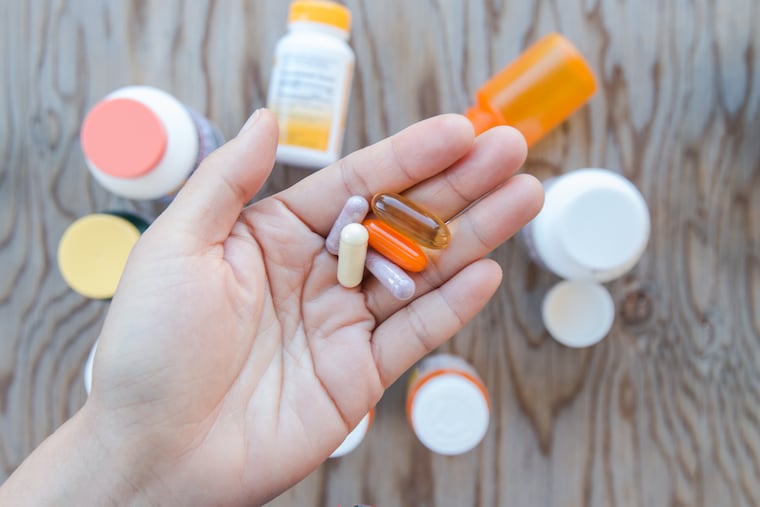Dietary supplements linked with risk of disability and death in youth, study suggests
Compared to vitamins, dietary supplements for weight loss, muscle building, and energy pose nearly three times the risk of severe medical events.

Children and young adults who take dietary supplements for weight loss, muscle building, and energy may face consequences ranging from hospitalization to disability or death, researchers from Harvard University’s school of public health found.
Compared to vitamins, those supplements pose nearly three times the risk of severe medical events, researchers suggest in a study published Tuesday in the Journal of Adolescent Health. Here are the highlights:
The context
Most health care providers do not recommend dietary supplements as a healthy or effective way to lose weight or build muscle — and some groups, like the American Academy of Pediatrics, actually warn against it. That’s because many of these products have been found to contain traces of prescription pharmaceuticals, heavy metals, pesticides, and other dangerous chemicals.
Yet 52 percent of Americans consume dietary supplements, including some infants less than 1 year old.
The U.S. Food and Drug Administration (FDA) is prohibited from regulating the supplements by the Dietary Supplement Health and Education Act, passed in 1994. Instead, the agency relies on manufacturers to ensure the safety of their own products. The FDA can — and often has — issued warnings about risks posed by supplements, but that isn’t always enough to deter consumers.
The data
Researchers analyzed data from the FDA’s Adverse Event Reporting System on food and dietary supplements. This database includes mandatory reports of adverse events from manufacturers, as well as voluntary reports submitted by consumers or doctors.
Researchers focused on reports between January 2004 and April 2015 that involved an individual 25-years-old or younger.
The results
From 2004 to 2015, there were 977 adverse event reports for children and young adults. About 40 percent of those involved severe medical outcomes, including life-threatening events, hospitalization, disability, or death.
The adverse events were most common with consumers ages 18 to 25. There were no significant differences by gender.
Compared to vitamins, dietary supplements sold for weight loss, muscle building, and energy were linked with three times the risk for severe medical outcomes. Supplements sold for sexual function and colon cleanse were linked with double the risk.
The results align with an earlier finding from the Centers for Disease Control and Prevention that about 23,000 emergency room visits across the U.S. each year may be due to dietary supplement use.
The caveats
Since the study relied solely on reports of adverse events, it doesn’t take into account how many people may have used the supplements without any negative consequences.
On the other hand, not everyone who experienced a negative effect would have reported it. This is especially likely for people with less severe issues, such as headaches or stomach pain.
Next steps
The study authors wrote that greater efforts are needed to reduce the access and consumption of dietary supplements among children and young adults. They suggest revising the law to allow the FDA to regulate supplements or taxing such products to make it less likely that young people will buy them. Years of research on cigarettes have found adolescents and young adults are the most likely age group to stop buying them when prices increase.